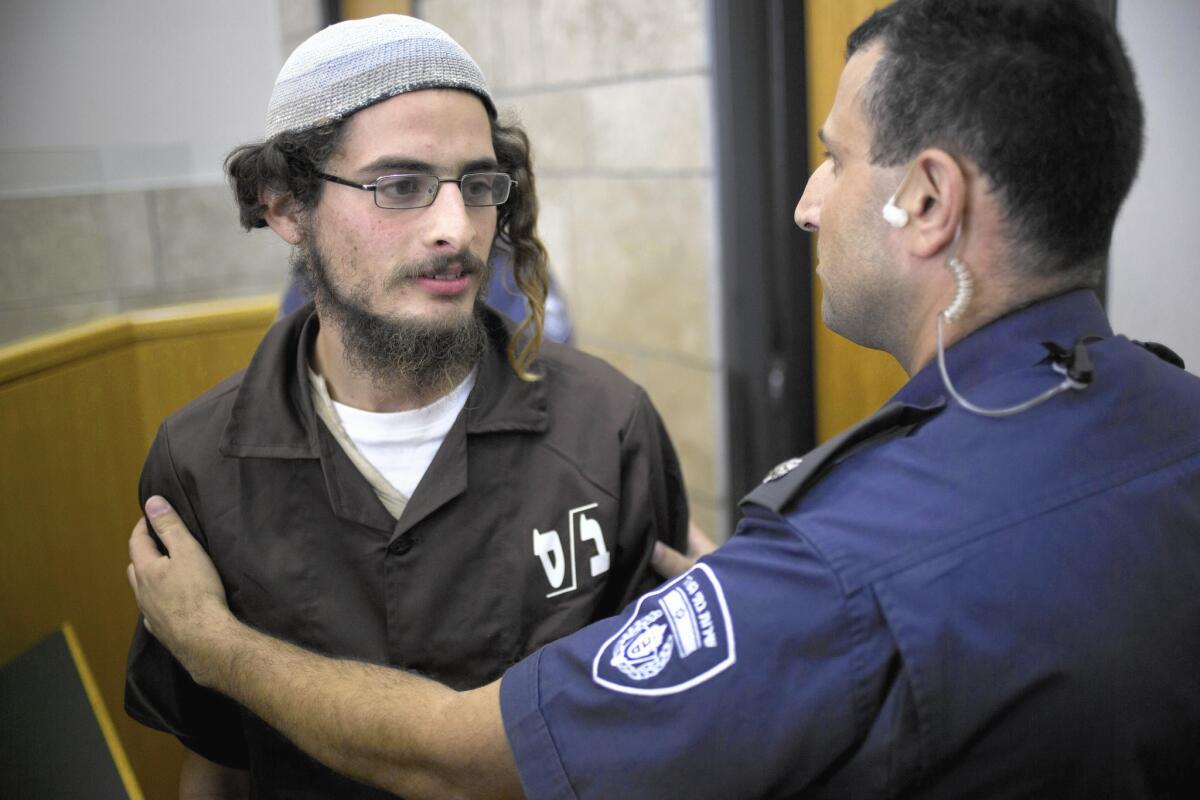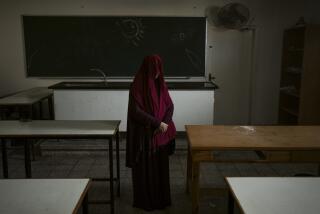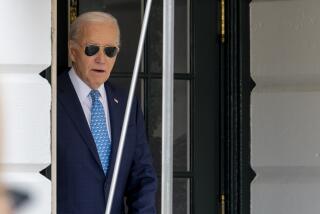As extremism rises, Israel extends administrative detention to Jews

Israel has long used the murky tool of administrative detention to place Palestinians in jail for extended periods without charging them with a crime. This week, for the first time in years, the practice was extended to Jewish suspects.
The unusual measure followed the arson attack last week that killed a Palestinian toddler and gravely injured his family as they slept in their home in the West Bank village of Duma.
The attack enraged Palestinians and sent shock waves through Israeli society, which was horrified by the near certainty that right-wing Jewish extremists were behind the attack.
NEWSLETTER: Get the day’s top headlines from Times Editor Davan Maharaj >>
“No one is above the law,” Prime Minister Benjamin Netanyahu said. “Anyone who violates it, who carries out hate crimes, terrorism, will face the full severity of the law, including administrative detention if needed.”
Amid increased tension, a Palestinian motorist ran his car into Israeli soldiers in the West Bank on Thursday, injuring three before he was shot by Israeli troops, the military said.
In the last decade, hundreds of attacks against Palestinians in the West Bank have been attributed to Jewish extremists, typically residents of Jewish outposts that are outlawed under both Israeli and international law. The attacks have ranged from vandalism of property to the burning of mosques and homes.
But few suspects have been arrested, and fewer charged and convicted in the attacks that mostly resulted in property damage and aggravation for Palestinians.
Increasingly, such attacks have spilled over into Israel, where Christian and Muslim sites have been targeted, as well as communities and institutions advocating coexistence between Arabs and Jews. One such attack in June caused serious fire damage to a landmark church, revered by Christians as the site where Jesus is said to have fed multitudes with fish and bread.
Often the attacks followed government actions against Jewish settlements in the West Bank, such as removal of an illegal outpost. In graffiti left at some of the sites, the perpetrators dubbed these “price-tag” attacks, a name that has stuck in the public discourse.
The legal system and law enforcement agencies have grappled with loosely organized violent Jewish extremists as attacks became bolder over the years.
After an attack by Jewish extremists against Israel’s military, Netanyahu’s previous government vowed tougher measures against home-grown militants but rejected a bill seeking to define the attacks as acts of terrorism.
More than a dozen mosques and Palestinian homes in the West Bank have been hit by arson attacks in recent years, but it wasn’t until the tragic outcome of Friday’s attack that authorities started using the legal measures already available, including administrative detention, which allows the jailing of a suspect for up to six months without trial, charges or even seeing any evidence. The six-month terms can be extended, sometimes for years.
Israeli officials say the practice is intended to prevent attacks and is not punitive. It is typically based on intelligence rather than evidence and is highly controversial. Rights organizations have worked to end the practice.
The West Bank attack fatally burned an 18-month-old Palestinian boy, Ali Dawabshe. His parents remained in critical condition in Israeli hospitals Thursday, and hospital officials said his 4-year-old brother was showing improvement but faced a long, painful recovery.
The attack came only 12 hours after Yishai Schlissel, an ultra-Orthodox Jew, was arrested on suspicion of attacking revelers at a gay pride parade in Jerusalem, injuring six people, among them a 16-year-old girl who died of her wounds Sunday.
Although different, the pair of fatal attacks prompted authorities to crack down on religiously and politically motivated Jewish extremists, although none have been accused of complicity in the violence.
First to be arrested was Meir Ettinger, the 23-year-old grandson of the late Meir Kahane, an assassinated ultranationalist rabbi from the United States whose anti-Arab Kach movement was outlawed in Israel.
Ettinger is considered a right-wing radical who advocates replacing Israel’s secular government with one that rules by Jewish law. Although suspected in previous attacks, he has never been indicted.
On Sunday, a court in Nazareth rejected an appeal from Ettinger and ruled that he will remain in custody until at least Sunday, when he may be placed under administrative detention. His supporters and counsel accuse Shin Bet, Israel’s domestic intelligence service, and police of a populist public relations move to appease public sentiment in the absence of concrete leads.
Also arrested and placed under administrative detention for six months were Evyatar Slonim and 18-year-old Mordechai Meyer, both suspected of involvement in various nationalistic crimes but never indicted.
At a news conference Wednesday, Meyer’s parents said they had been given no reason for their son’s detention.
“They had to arrest someone and he was the scapegoat,” they said.
Sobelman is a special correspondent.
NEWSLETTER: Get the day’s top headlines from Times Editor Davan Maharaj >>
More to Read
Start your day right
Sign up for Essential California for news, features and recommendations from the L.A. Times and beyond in your inbox six days a week.
You may occasionally receive promotional content from the Los Angeles Times.






